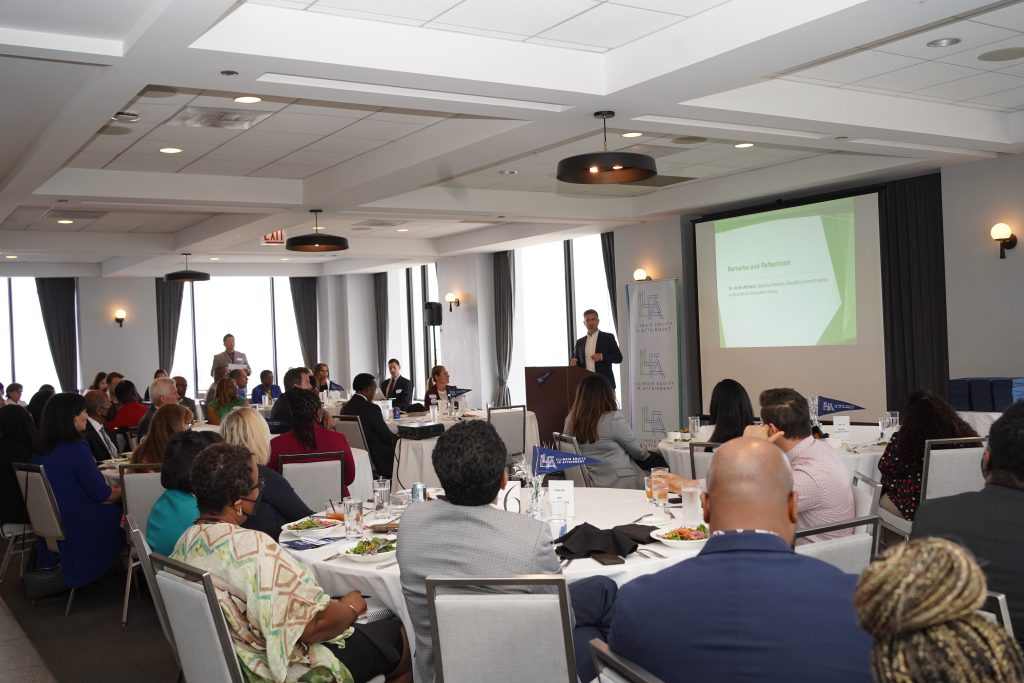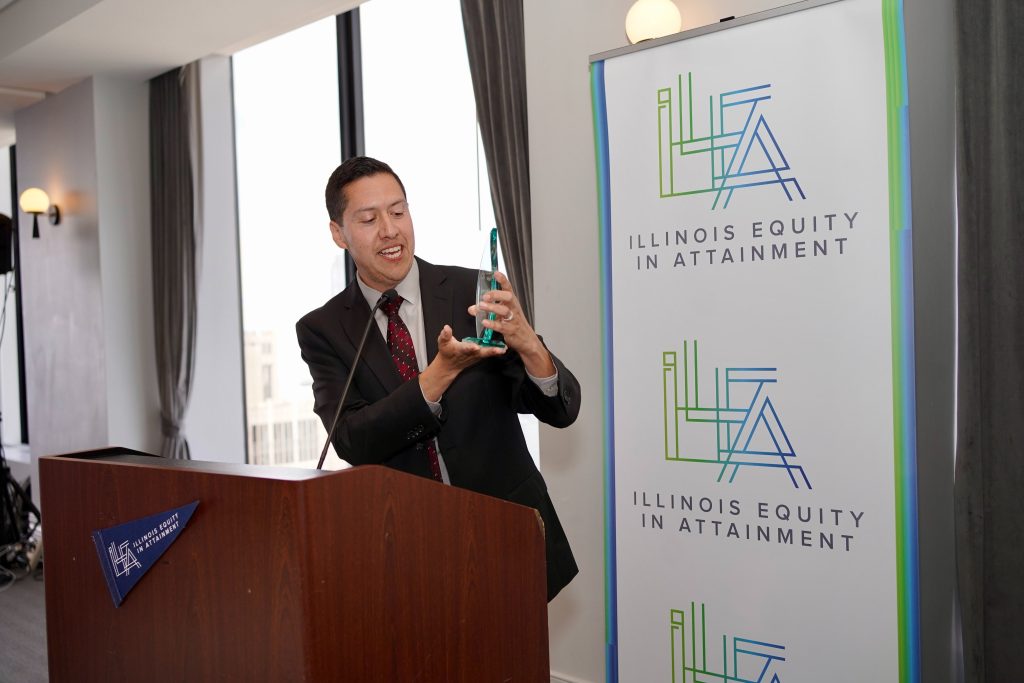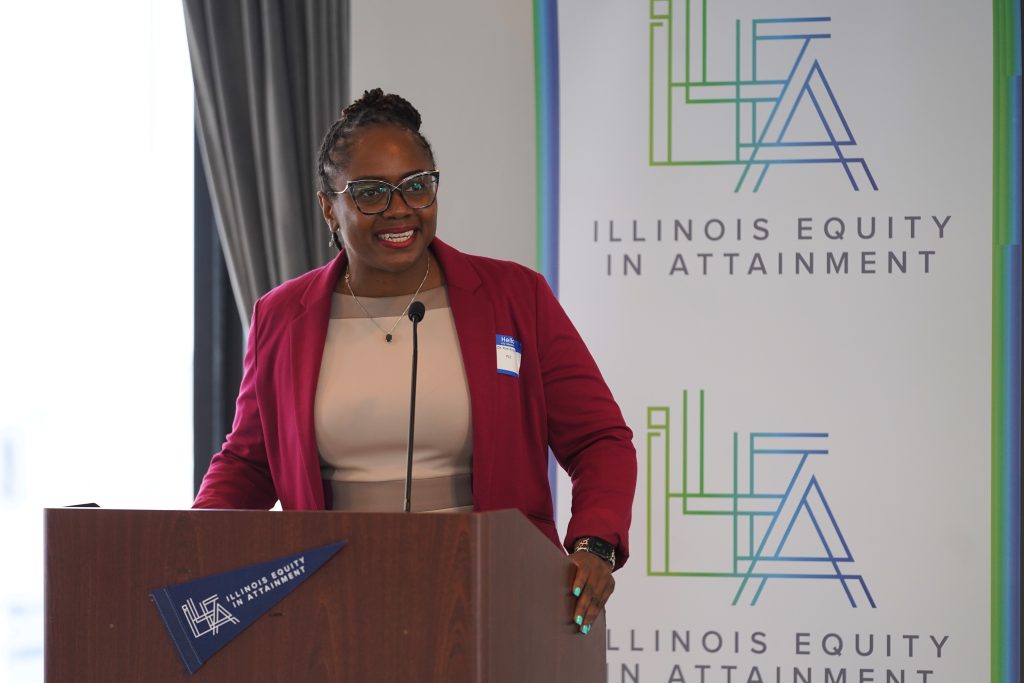
This June, the Partnership for College Completion (PCC) welcomed the return of in-person programmatic work with a special luncheon to recognize a group of Illinois college and university leaders working to eliminate racial and socioeconomic disparities in college completion on their campuses.
“[Equity work] is a marathon with some sprints in the middle, it is all of the things,” PCC’s Executive Director Lisa Castillo Richmond said during her remarks before a room of institutional leadership teams who participated in PCC’s first Equity Academy for Presidents and Cabinets (EAPC).
The EAPC, a multi-year program developed in collaboration with the Aspen Institute College Excellence Program, provided college and university presidents and their leadership teams added support in the long-term implementation of their equity plans. In addition to learning how to better communicate their equity-centered work on a broader scale, leaders also learned more about improving data transparency and data use, and grew their plans for addressing student success disparities. Presidents and cabinets eligible to participate in the EAPC included members of the Illinois Equity in Attainment initiative (ILEA).
As Castillo Richmond reflected on the difficulty of the leaders’ work driving change in increasingly complex and challenging times, she underscored the importance of staying motivated.

“It is by definition deeply difficult work to undo centuries of exclusion in higher education and to create systems and structures, cultures and institutions that are diverse, inclusive, and equitable,” Castillo Richmond said, noting that the month of June is an important month for this work with the anniversaries of DACA, Title IX, the Pell Grant, and Juneteenth.
Keith Witham, Deputy Director for Education Grantmaking at Ascendium’s Education Philanthropy, delivered the luncheon’s keynote remarks, noting that the group is one of the only groups in the nation whose leaders place equity at the center of their institutions’ strategic plans.
“You’ve probably all heard the truism, ‘Every system produces exactly the outcomes it’s designed to produce’,” Witham said. “The inequities we see our students experiencing in their ability to thrive in college are not accidents. They emerged from the systems that were created. We cannot address them without redesigning the system.”
During the event, designed as a working lunch, attendees were given the opportunity to network and spend time discussing their campus-based change efforts with leaders from other institutions.
Presidents and cabinets at the following colleges and universities were recognized: Blackburn College, Chicago State University, Kennedy-King College, Harry S. Truman College, Malcolm X College, Olive-Harvey College, Richard J. Daley College, Wilbur Wright College, College of DuPage, College of Lake County, Governors State University, Kishwaukee College, Moraine Valley Community College, Morton College, Northern Illinois University, Roosevelt University and Harper College.

Before the program’s end, PCC’s Managing Director Dr. Kim Everett brought the importance of the leaders’ work close to home—as she was the first in her family to graduate from high school, parented a child through college, and ultimately earned a doctorate.
“When you see me today, I want you to think back to 20 something years ago when I might have shown up at your campus, when I was the student you were working to close the achievement gaps for,” Everett said.

